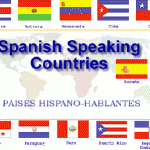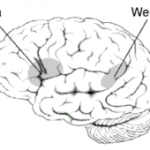English, Speaking
I definitely grew up in an English-speaking household. English was the only language really spoken under my parents’ roof, to the point where my first personal experience with foreign language was Spanish class, freshmen year of high school. There was no malice attached to our household monolingualism. In fact, I’m unsure what brought it on. Perhaps my parents were too busy raising six kids or thought other languages should be learned later. Maybe they just didn’t think about it. Regardless, English stood out as a priority. My mother, an English major, pushed me to explore literature, starting with children’s books. As I read, Hop on Pop and Go Dog Go gave way to A Series of Unfortunate Events and Artemis Fowl. J.K. Rowling, Joseph Delaney, Blue Balliet were usurped by Douglas Adams, Stephen King, Kurt Vonnegut. By late middle school I realized that I loved English. Learning the conventions of proper English as well as how people actually used the language encouraged me to explore how it could be manipulated to persuade, to tell a story or just for fun.
The room for interpretation in the English language has fascinated me for different reasons at different points in my life. For a long time, puns were the the highest form of future in my eyes. Alice in Wonderland and The Phantom Tollbooth, along with dozens of other books, comics and jokes using the same device were my favorite. Though I still incorporate this sort of wordplay into my own sense of humor, I’ve also learned of how it can be a powerful writing tool. AP Literature and Composition is where I first really started experimenting. Wiggle room in meaning, intentional or otherwise, in a person’s work could lead to vastly different, even conflicting, interpretations of the same passage. You could make the founding fathers, for example, say anything you wanted by casting their words in a different light. This is the sort of thing that I like to look at in language.
Unfortunately, I’ve yet to profoundly familiarize myself with any language other than English. The understanding of Spanish I gained from the three years spent studying it in high school has degraded to the point where it is barely rudimentary. I could blame the shoddily constructed language program at my school or my first Spanish teacher’s disinterest in the class, but overall I didn’t apply myself. I wasn’t interested at the time and the teaching style didn’t encourage development. That said, the ground level knowledge I gained and Spanish and English’s shared Latin roots make it possible for me to communicate basic ideas in Spanish. This was particularly useful in a recent trip to Mexico, where I found that some of what I’d learned came back to me intuitively.
In the future, I hope to learn at least a couple of other languages. Sticking to one language seems like clinging to one mindset or lens for viewing the world. Whole civilizations of culture and literature are unavailable to me as someone who only speaks English, and I hope to remedy that as much as I’m able.




 D5 Creation
D5 Creation
“Oh no, not again” –bowl of petunias
START LEARNING MORE LANGUAGES– RIGHT NOW! Imagine reading Douglas Adams in German, or Norman Juster in French!
Go. Learn. Language. Now.
-dsb